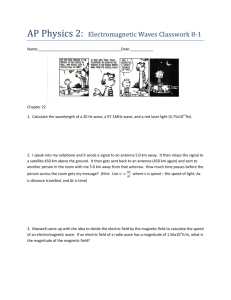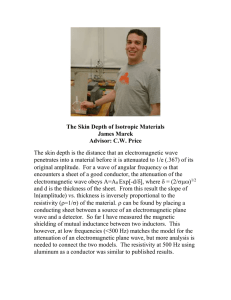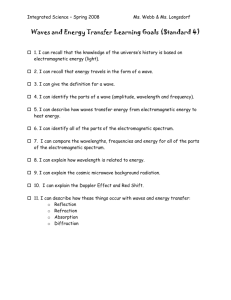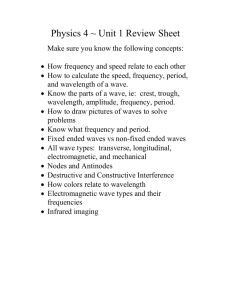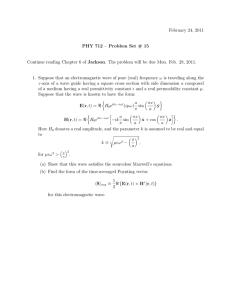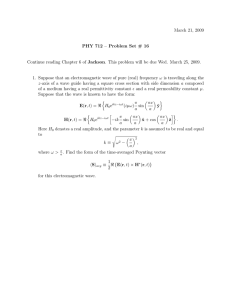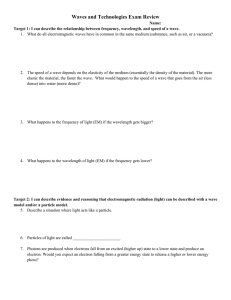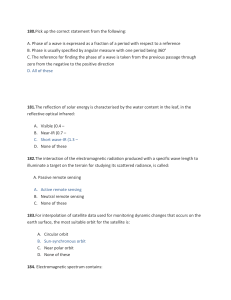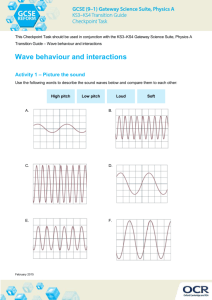Alternating Current Circuits and Electromagnetic Waves Chapter 21
advertisement
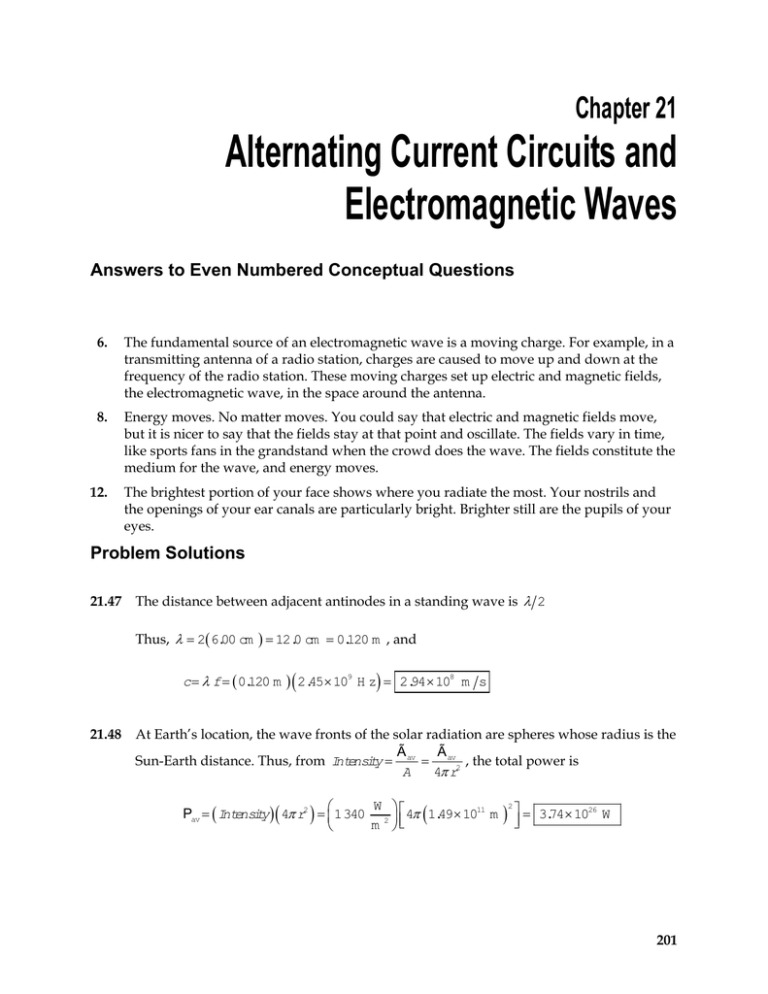
Chapter 21 Alternating Current Circuits and Electromagnetic Waves Answers to Even Numbered Conceptual Questions 6. The fundamental source of an electromagnetic wave is a moving charge. For example, in a transmitting antenna of a radio station, charges are caused to move up and down at the frequency of the radio station. These moving charges set up electric and magnetic fields, the electromagnetic wave, in the space around the antenna. 8. Energy moves. No matter moves. You could say that electric and magnetic fields move, but it is nicer to say that the fields stay at that point and oscillate. The fields vary in time, like sports fans in the grandstand when the crowd does the wave. The fields constitute the medium for the wave, and energy moves. 12. The brightest portion of your face shows where you radiate the most. Your nostrils and the openings of your ear canals are particularly bright. Brighter still are the pupils of your eyes. Problem Solutions 21.47 The distance between adjacent antinodes in a standing wave is λ 2 Thus, λ = 2( 6.00 cm ) = 12.0 cm = 0.120 m , and c = λ f = ( 0.120 m 21.48 ) ( 2.45× 109 H z) = 2.94× 108 m s At Earth’s location, the wave fronts of the solar radiation are spheres whose radius is the à à Sun-Earth distance. Thus, from Intensity = av = av2 , the total power is A 4π r W ⎞ ⎛ Pav = ( Intensity) ( 4π r2 ) = ⎜ 1340 2 ⎟ ⎡⎢ 4π ( 1.49× 1011 m m ⎠⎣ ⎝ ) 2 ⎤ = 3.74× 1026 W ⎦⎥ 201 202 CHAPTER 21 21.51 (a) For the AM band, λm in = 3.00 × 108 m s c = = 188 m fm ax 1600 × 103 H z λm ax = 3.00 × 108 m s c = = 556 m fm in 540× 103 H z (b) For the FM band, λm in 3.00 × 108 m s c = = = 2.78 m fm ax 108× 106 H z λm ax = 21.53 3.00 × 108 m s c = = 3.4 m fm in 88 × 106 H z If an object of mass m is attached to a spring of spring constant k, the natural frequency of vibration of that system is f = k m 2π . Thus, the resonance frequency of the C=O double bond will be f= 1 2π k m oxygen = 1 2π 2800 N m = 5.2× 1013 H z 2.66 × 10−26 kg atom and the light with this frequency has wavelength λ= c 3.00 × 108 m s = = 5.8× 10−6 m = 5.8 µ m f 5.2× 1013 H z The infrared region of the electromagnetic spectrum ranges from λm ax ≈ 1 m m down to λm in = 700 nm = 0.7 µ m . Thus, the required w avelength falls w ithin the infrared region .

